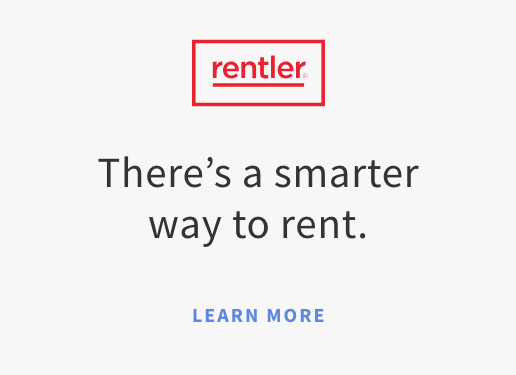Many often wonder, “Which is the better choice? The city or the suburbs?” Let’s look at the perks and cons of moving to the suburbs.
Where you live is equally important as the house you live in. Every year, millions of people decide to move from the cities to the suburbs. When relocating to a new location, there are several factors that you need to consider. For example: the employment market, the environment, recreation, and many other factors.
Apart from these considerations, you also have to decide whether you prefer an urban lifestyle or a peaceful suburban lifestyle. Each provides a distinct experience.
In order to assist you in determining which option is best for you, we will discuss the pros and cons of living in the suburbs.
Why Should You Move to the Suburbs?
- Easy to Find a Larger Home at a Lower Cost
Many people dream of living in a large and spacious house. However, it can be very difficult to find a large house for yourself in the city due to high prices.
Very few people can afford large houses in the city. However, the suburbs can be much more affordable. It’s even possible that the mortgage payment on a house in the suburbs is less expensive than the rent of a relatively smaller apartment in the city.
Certain suburbs are likely to be more costly than others, but by doing thorough research, you should be able to find yourself a nice place that matches both your needs and your wallet. Mason City real estate can help you with that.
- Access to Amenities and New Developments
One of the most common reasons people find suburban life undesirable is the lack of access to amenities. Many may say that the suburban life is not ideal for the younger generation that seeks thrills and indulges in parties and adventures. However, times are changing.
In recent years, developers have made suburban life more appealing to the younger generation by providing a wide range of facilities and amenities, delivering the benefits of city living at a considerably cheaper cost. In many suburbs there are numerous cafés, bars, theaters, and live sports available, especially as the demand for local services rises in tandem with the trend of people leaving urban areas in pursuit of a better lifestyle.
- Better Education for Children
Schools in the suburbs outperform those in the city for a variety of reasons. One advantage is that class sizes are smaller. As there are typically more schools in suburban areas, children are less likely to be clustered in classrooms of more than 50 students for each teacher to manage. Larger classrooms are much more difficult for teachers too and can compromise the quality of their output for the students.
In addition, students in the suburbs are more likely to participate in extracurricular activities. Through extra curricular activities, students can improve their time management, enhance their communication skills and develop leadership abilities, all incredibly vital skills to take into adulthood.
- Breathe in a Peaceful Environment
Suburbs will offer communities with homes spaced apart, as opposed to the congested atmosphere of the city where commercial and apartment spaces are integrated into one giant sprawl. Instead of playing on the roadway or walking to a public park, your children can enjoy playing in your front, side, or backyard.
There will also be less traffic on the road than if you lived in the city. The noisy horns of the vehicles on the streets are absolute torture for many and one of the primary reasons for moving to the suburbs. However, residences are likely to be spread in such a way that it is still convenient for people in the community to meet and socialize regularly.
Due to fewer crowds and traffic, pollution in the suburbs is far lower than in the cities. If you are a fan of enjoying the bright stars at night with a loved one by your side, the suburbs are the far better choice. Furthermore, it is unlikely that you will encounter garbage and trash when you open your front door, as people are not in a hurry to toss things away.
- Safety Matters
Recent studies suggest that suburbs are safer compared to cities. Crime rates in the suburbs are typically much lower than in urban areas. Safety is obviously a top concern for many people, and in turn, they may find suburbs the better choice.
- Strong Sense of Community
People love the spirit of togetherness that comes with suburban life. In the suburbs, everyone knows everyone, which can be wonderful experience and create a positive atmosphere. People in the suburbs eventually build up great relationships and are very supportive of one another. This is something that you cannot find in the fast-paced and hectic urban lifestyle.
Why Suburbs Aren’t Always Perfect
- Extra Rooms to Fill
One of the pros of moving to the suburbs is the spacious houses at an affordable price. However, with great power comes great responsibilities. Here, your “power” is the greater space, and the “responsibilities” are the spaces that you need to fill.
It seems nice to have an extra room until you realize how empty it appears after relocating from a small house or apartment. Having to fill a large area with additional furniture and belongings might be expensive, especially if you plan on buying everything new. As a result, buying new furniture and other items for decorating the house can take a big chunk out of your wallet.
You can alleviate some of the cost by finding local stores that will sell furniture and miscellaneous items at bargain prices. You can also search for secondhand furniture still in good condition. Being smart about your furniture purchases can allow you to decorate to your heart’s content without breaking the bank.
- More Competition in the Job Market
Before you decide to move to the suburbs, make sure you have found a job there or have a good amount of savings in the bank. Typically, the job market in the suburbs can be competitive. If you lack prior work experience and are looking to land your first job, be ready to struggle at first. Don’t expect to just drop your CV and land a job right away. Rather, you need to be mentally ready for some rejections.
You might even have to upload your resume and cover letter on numerous job sites, maintain contacts with recruitment agencies, and attend career fairs. Patience and perseverance will be required before you get your first job. However, if you have strong contacts and network with the right people, your odds of getting recruited are much greater and the job search process will be simpler and shorter.
- Difficult to Move Without Personal Transportation
Unfortunately, in many suburbs it is not easy to access public transportation. You will need to have a car in order to travel around in the suburbs. If you desire the large living space of the suburbs, you may have to sacrifice the convenience of having everything within walking distance.
Having a car can also be extremely costly due to the price of gas, maintenance, insurance, and obviously, the vehicle itself. Also, keep in mind that your drive will most likely be lengthier, which will require you to wake up earlier in order to reach your office or workplace on time. If a long commute would be a hassle for you, then spending more to stay within the city may be your right choice.
Final Thoughts
Now that you’ve reviewed our list of the pros and cons of moving to the suburbs, it’s up to you to decide whether or not you are willing to move. Whether you move to the suburbs or stay in the city, your choice will have a strong influence on your lifestyle. As a result, it is critical to do your homework and thoroughly investigate which atmosphere will best suit your desired lifestyle and living standards. What is best for others may not be best for you. Choose wisely!



